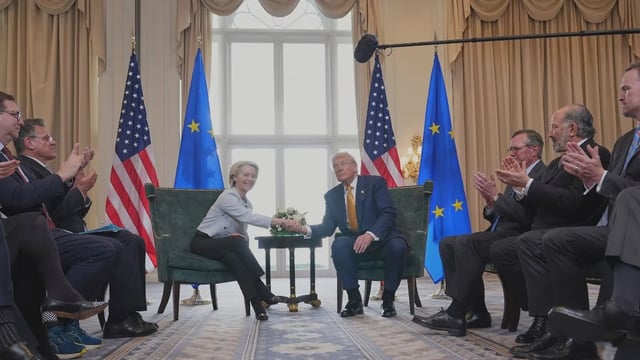Overview
- The agreement went into effect late July, imposing a 15% tariff on most EU goods while enshrining duty-free treatment for aerospace parts, semiconductor equipment, chemicals, agricultural products, and key raw materials.
- In exchange, the EU committed to purchasing $750 billion in American energy over three years and boosting investments in the U.S. by $600 billion.
- Economists warn the new levies could saddle the average household with roughly $1,000 in added costs each year and sharply raise material expenses for U.S. manufacturers.
- Although lower than Trump’s threatened 30% and 50% proposals, the 15% rate far exceeds the pre-2025 average which hovered around 1 to 2 percent, marking a lasting shift in U.S. trade policy.
- A U.S. Court of International Trade ruling against the ‘Liberation Day’ tariffs is on appeal in the Federal Circuit, prolonging scrutiny of the president’s emergency tariff powers.

